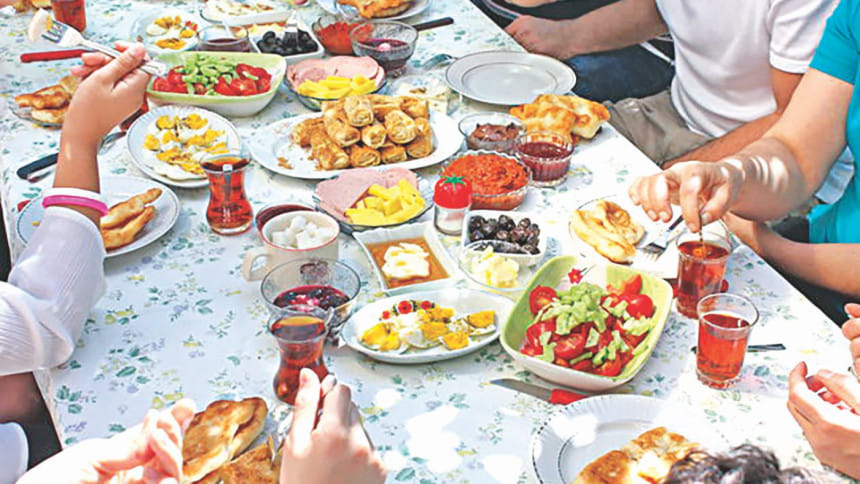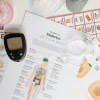Diabetes during Ramadan

The month of Ramadan is a special time for the Muslim where fasting and feasting are integral to religious life, social interaction and communal celebration. Understanding the spiritual significance of this month to the Muslim as well as the practical aspects can put the physician in a much stronger position to gain patient trust and facilitate communication.
The holy month of Ramadan, which sees Muslims all over the world fast during day time hours, does having type 2 diabetes (T2D) exclude a person from fasting? Obviously not necessarily. This holy month people with T2D can manage the condition by maintaining a healthy lifestyle including doing exercise and keeping a healthy diet. In more serious cases, people with T2D may need to take medications such as metformin, sulfonylureas, or other glucose-lowering tablets, or self-administer insulin injections.
During Ramadan, most people have two meals per day, at sunset and before sunrise. In general, patients with type 1 diabetes (T1D) should be strongly advised to not fast. Patients with T1D who have a history of recurrent hypoglycaemia or hypoglycaemia and unaware of it or who are poorly controlled are at very high risk for developing severe hypoglycaemia.
On the other hand, an excessive reduction in the insulin dosage in these patients (to prevent hypoglycaemia) may place them at risk for hyperglycaemia and diabetic ketoacidosis. This can also be risky for people with T2D – particularly those who use insulin or certain oral diabetes.
Low blood glucose levels can cause symptoms of sweating, shakiness and confusion. If severe, they feel to seizures, coma, or even death. High blood glucose levels make people feel tired and can lead to dehydration and poor concentration. Extremely high levels are a medical emergency.
According to Islamic teachings, the elderly, pregnant, or those with illnesses requiring regular medication – like diabetes – can be exempted from fasting on medical grounds. Now we can discuss about nutrition and exercise on Ramadan and breaking the fast when it required:
Nutrition: The diet during Ramadan should not differ significantly from a healthy and balanced diet.
The common practice of taking large amounts of food rich in carbohydrate and fat, especially at the sunset meal, should be avoided. Because of the delay in digestion and absorption, ingestion of foods containing 'complex' carbohydrates may be advisable at the predawn meal, while foods with simpler carbohydrates may be more appropriate at the sunset meal.
It is also recommended that fluid intake be increased during non-fasting hours and that the predawn meal be taken as late as possible before the start of the daily fast.
Exercise: Normal levels of physical activity may be maintained. However, excessive physical activity may lead to higher risk of hypoglycaemia and should be avoided, particularly during the few hours before the sunset meal.
If Tarawih prayer is performed, then it should be considered a part of the daily exercise programme. In some patients with poorly controlled type 1 diabetes, exercise may lead to extreme hyperglycaemia.
Breaking the fast: All patients should understand that they must always and immediately end their fast if hypoglycaemia (blood glucose of <3.3 mmol/l) occurs, since there is no guarantee that their blood glucose will not drop further if they wait or delay treatment. The fast should also be broken if blood glucose reaches 3.9 mmol/l in the first few hours after the start of the fast, especially if insulin, sulfonylurea drugs, or meglitinide are taken at predawn.
Finally, the fast should be broken if blood glucose exceeds 16.7 mmol/l.
The management plan must be highly individualised. Close follow-up is essential to reduce the risk for development of complications.
The writer is a Consultant, Diabetes, Rheumatology and Family Medicine at Praava Health.
E-mail: [email protected]

 For all latest news, follow The Daily Star's Google News channel.
For all latest news, follow The Daily Star's Google News channel. 






Comments